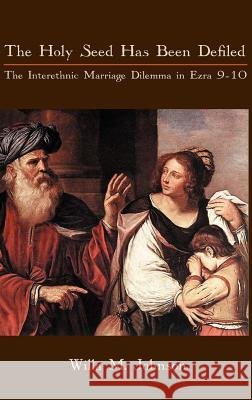The Holy Seed Has Been Defiled: The Interethnic Marriage Dilemma in Ezra 9-10 » książka
The Holy Seed Has Been Defiled: The Interethnic Marriage Dilemma in Ezra 9-10
ISBN-13: 9781907534218 / Angielski / Twarda / 2011 / 146 str.
In the Book of Ezra-Nehemiah, Ezra commands Yehudite men to put away their foreign wives to avoid further defiling the 'holy seed'. What is the meaning of this warning? Are Ezra's words to be understood as a concern about race-mixing or is it emblematic of some more complex set of problems prevalent in the fledgling postexilic community? Ezra's words, with their seemingly racialized thinking, have been influential in much political, religious and popular culture in the USA. It has been a backdrop for constructing racial reality for centuries, melding seemingly biblical ideologies with accepted European Enlightenment-era ideas about racial superiority and inferiority. Willa Johnson combines archaeological data with social-scientific theory to argue for a new interpretation. In this anthropological and narratological analysis, Johnson views Ezra's edict in the light of ancient Yehudite concerns over ethnicity, gender, sexuality and social class following the return from exile. In this context, she argues, the warning against intermarriage appears to be an effort to reconstitute identity in the aftermath of the cataclysmic political dominance by first the Babylonian and then the Persian empires. This book represents a postmodern interdisciplinary approach to understanding an ancient biblical socio-political situation. As such, it offers fresh perspectives on ways that interpretations of the Bible continue to reflect the ideologies of its interpreters.











